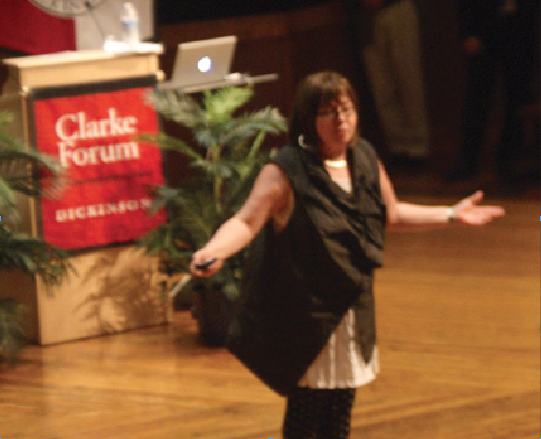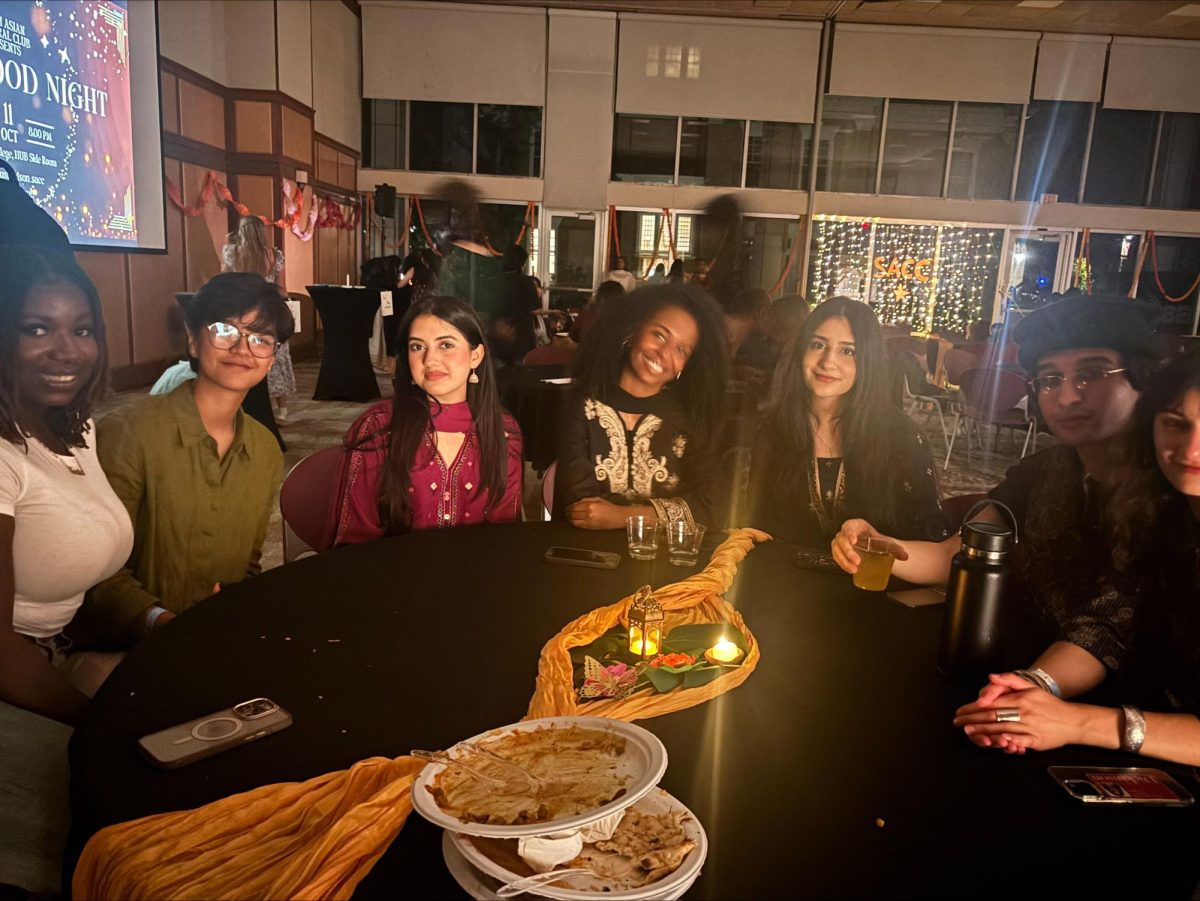
“Here, I will present to you a critical analysis of the wallpaper of our lives,” said Gail Dines, professor of sociology and women’s studies at Wheelock College, at the start of her presentation. On Tuesday, Sept. 3, Dines came to Dickinson to speak about porn culture in American media All of her talking points, however, centered around one driving question: What shapes our sexuality as human beings?
Dines opened her presentation in the jam-packed ATS auditorium with a message of authority. After formally introducing herself and her interests as an academic, she began her lecture with the aforementioned quote. This metaphorical “wallpaper” is a term in reference to the constant barrage of images we receive every day in a post-internet multimedia society. The relationship between popular culture and sexual psychology, Dines argued, is an ever-increasing correlation that we should be wary of as citizens surrounded by a plethora of cultural pressures. Sometimes these pressures can have serious and detrimental consequences.
She continued by presenting a number of photographs selected from various magazines and other sources of popular culture.
One image that stood out was an image of blond swimsuitmodels that Dines used to exemplify the way the media tends to homogenize and sexualize women in a way that turns them from people, with emotions and beliefs and history, to objects, without any distinguishable characteristics to set them apart from each other as humans. Dines then linked this argument of homogenization to a broader criticism about global capitalism. She described an all too popular marketing strategy that promotes a constant message from the media saying to women, ‘you are not good enough, you need to improve.’
After laying out her arguments about the corruption and lack of integrity on the part of big businesses and advertisement corporations, Dines moved on to her most provocative point, in regard to pornography.
“Pornographers are the enemy of young men,” Dines said. Subsequent to her description of the ubiquitous presence of capitalism in our everyday lives, Dines got to the heart of her argument: sex sells. In the perspective that Dines portrayed in her speech, porn is single-handedly the most influential factor in establishing a dominant-subordinate dichotomy between men and women. The stereotypes and subliminal messaging techniques used in marketing are brought to the light entirely in pornographic films, where the male takes on the role of aggressor and the female of vulnerable and passive object. It is this kind of superior-inferior relationship that, Dines argues, leads to violence and relationship abuse. It is imperative, in accord with that logic then, to do everything we can to discourage this promotion of overtly sexualized images that portray this binary system of inequality.
Dines ended her speech with a message to the audience. She said that to make a change in any big way is very much akin to “pushing a boulder up a mountain.” However, if we all push together and do it with the right intentions, something might happen for the better.
As expected with any talk as controversial and provocative as the one Professor Dines gave, there were a variety of contrasting opinions that came from both students and faculty at the conclusion of the presentation.
“I thought that some of her views on anti-porn were very educational, but I think we lost a great opportunity as feminists,” said Patti Kotrady ’16, member of the Feminist Collective. “There were so many people here that may or may not have known what feminism has to do with, and I feel like [Dines] really shut down a whole third wave and still-continuing wave of feminism that has to do with empowering women no matter what they wear. We empower all women. We fight for all women. That’s what feminism is.”
Assistant Director of Student Life Dan Confer also had a response to the controversial talk.
“I think it’s really important that we have this conversation, because I continue to believe that at the root of some of the issues we have, regarding violence, are [certain kinds of] relationships,” he said. “If you aren’t taught by someone in your life whose input you value, explaining sexuality to you…then all you’re left with are these images, [and that can be] incredibly destructive to the construction of your sexuality.”
Esprit Basner ’15, co-President of SPANKK (Students Promoting an Active Network of Kinky Knowledge), found problems in Dines’s talk as well.
“The biggest problem to me is that she said some really important things, but she also said some really problematic things. I took issue with the fact that, immediately, in the first two sentences of her presentation, she pitted the women against the men,” she said. “Also, [SPANK] is trying to get rid of these ideas that [BDSM] is about abuse… or an unfair exchange of power, because that’s not what it is. She said some really important things, and we have to consider them. But, just like with any person who’s in a position of authority, we have to recognize when they’re wrong, too.”





